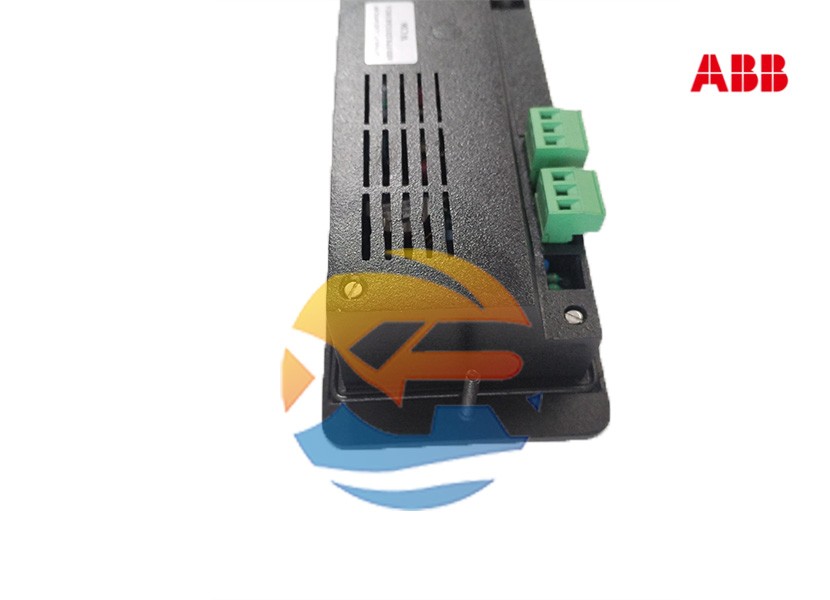Selecting a control system is about matching technology to operational challenges. For industries where equipment failure can lead to safety risks, environmental incidents, or massive financial loss, the reliability of the controller is paramount. The ABB FPR3203526R1002A modular industrial controller is engineered for precisely these demanding environments. This article explores its key applications in sectors like power generation, oil and gas, and water management.

The Need for High-Availability Control
In critical infrastructure, the control system cannot fail. High-Availability (HA) systems are designed with redundancy and robust components to ensure continuous operation. The modular and rugged design of the FPR3203526R1002A makes it a suitable candidate for such applications, where it acts as the dependable brain for complex processes.
Key Application Areas for the FPR3203526R1002A
1. Power Generation and Distribution
Power plants, whether thermal, hydro, or nuclear, require controllers that can operate 24/7 for years without interruption.
- Turbine Control: The controller can manage the complex sequencing and regulatory loops for steam or gas turbines, ensuring safe and efficient operation.
- Generator Excitation Control: It provides precise control over the generator's field current, which is critical for maintaining grid stability and voltage regulation.
- Balance of Plant (BOP): For controlling critical auxiliary systems like boiler feed pumps, cooling water systems, and fuel handling, where a failure can lead to a unit trip.
2. Oil & Gas Upstream and Midstream
From offshore platforms to pipeline pumping stations, the operating environment is harsh and remote.
- Compressor Control: The controller can run sophisticated anti-surge algorithms for gas compressors, protecting this extremely expensive equipment from damage.
- Safety Instrumented Systems (SIS): While often a separate system, controllers like the FPR3203526R1002A, with their high reliability, can be used for process shutdown functions, providing a critical safety layer.
- Wellhead Control: Managing the flow from multiple wells, ensuring parameters like pressure and flow are within safe limits.
3. Water and Wastewater Treatment
These facilities are critical for public health and environmental protection. Reliability is non-negotiable.
- Pump Station Control: Managing sequences for multiple high-power pumps, ensuring even wear and preventing dangerous conditions like run-dry or overflow.
- Chemical Dosing Control: Precisely controlling the addition of treatment chemicals (e.g., chlorine, coagulants) based on flow and water quality measurements. Accuracy is vital for safety and cost control.
- Membrane Filtration Systems: Controlling the complex backwashing and cleaning cycles of advanced filtration systems.
4. Chemical and Pharmaceutical Manufacturing
These batch processes require strict recipe management and repeatability.
- Batch Process Control: The controller's power and reliability make it ideal for defining and executing complex batch sequences where product quality is paramount.
- Data Integrity: Its capabilities for secure data logging are essential for meeting regulatory requirements (e.g., FDA 21 CFR Part 11) in the pharmaceutical industry.
The Tangible Benefits in These Applications
Using a robust controller like the FPR3203526R1002A delivers clear outcomes:
- Increased Plant Availability: Redundant configurations prevent unplanned shutdowns, maximizing production time.
- Enhanced Safety: Reliable execution of control and safety interlocks protects personnel, assets, and the environment.
- Reduced Operational Costs: Minimized downtime and optimized process control lead to lower operating expenses.
- Improved Compliance: Accurate data recording and secure operation help meet stringent industry regulations.
Conclusion
The application of the ABB FPR3203526R1002A is a mark of a well-designed, critical control system. Its deployment in power, oil & gas, and water sectors underscores its role in ensuring the continuous, safe, and efficient operation of the infrastructure that modern society depends on. For engineers, specifying this controller is an investment in long-term operational resilience.
